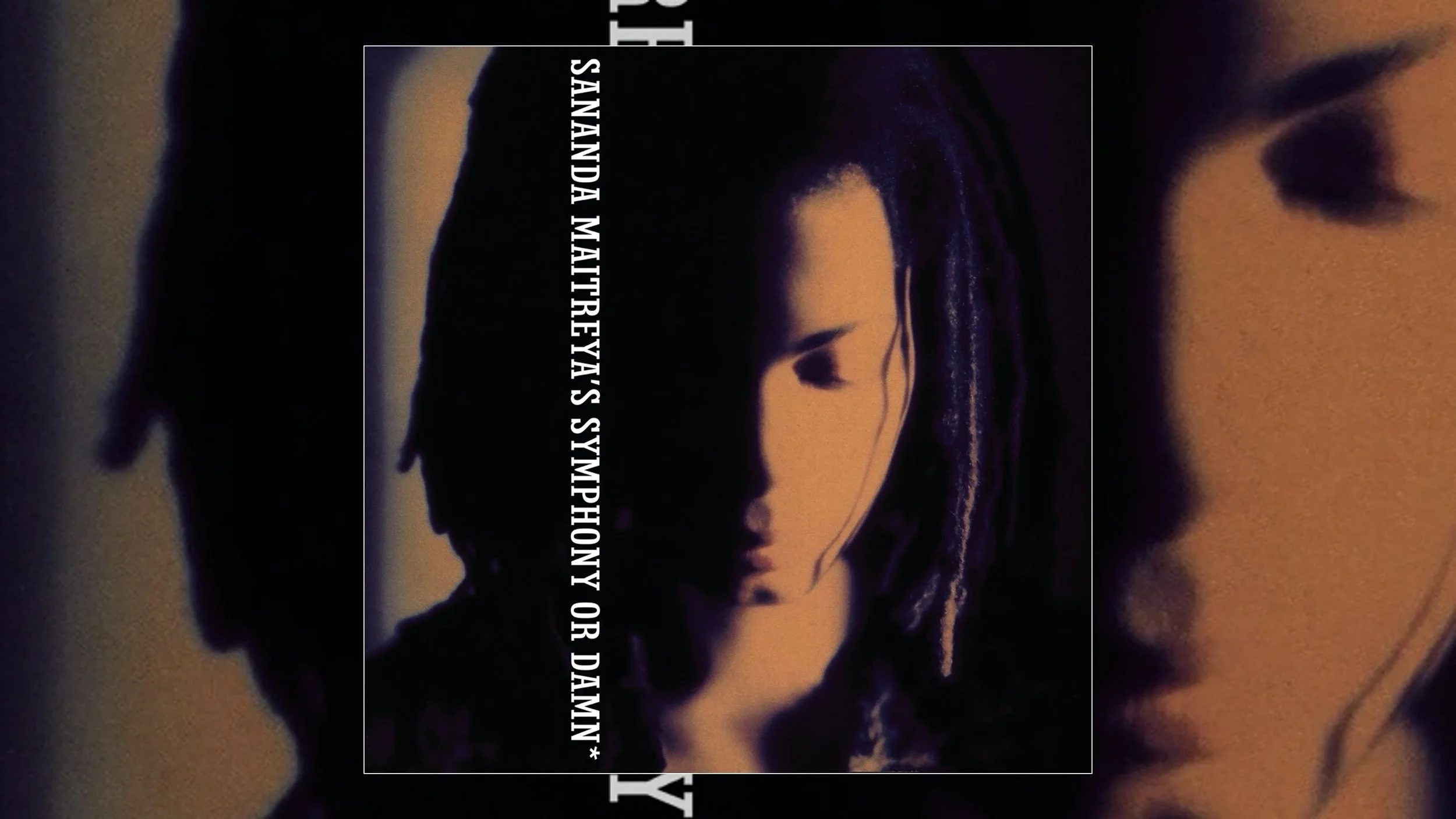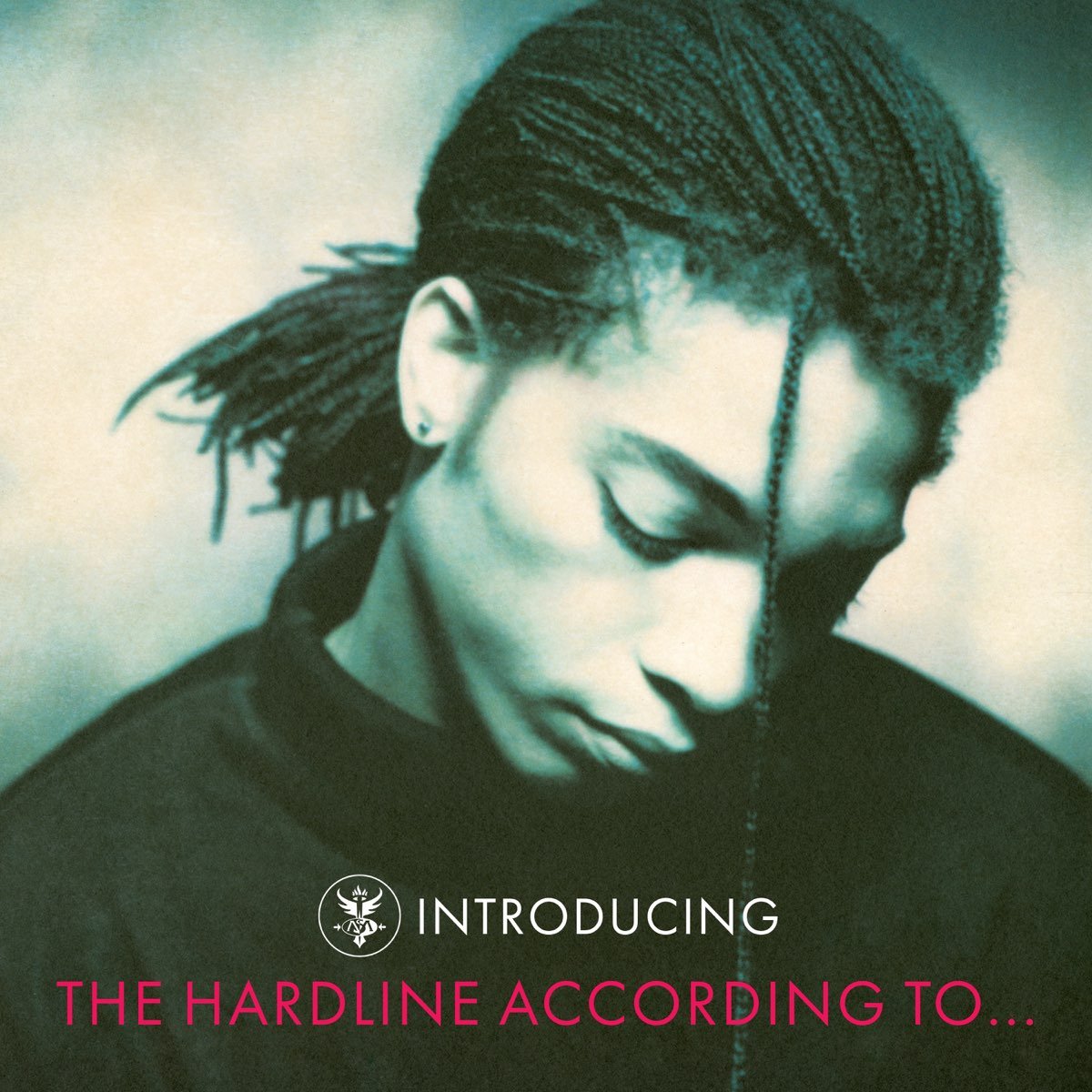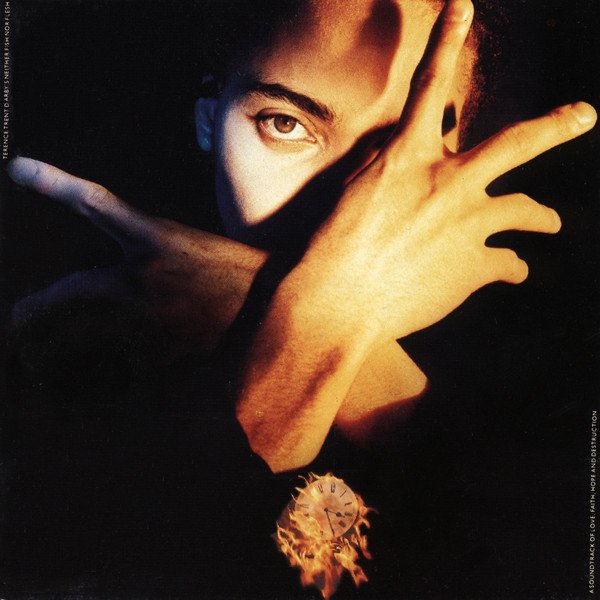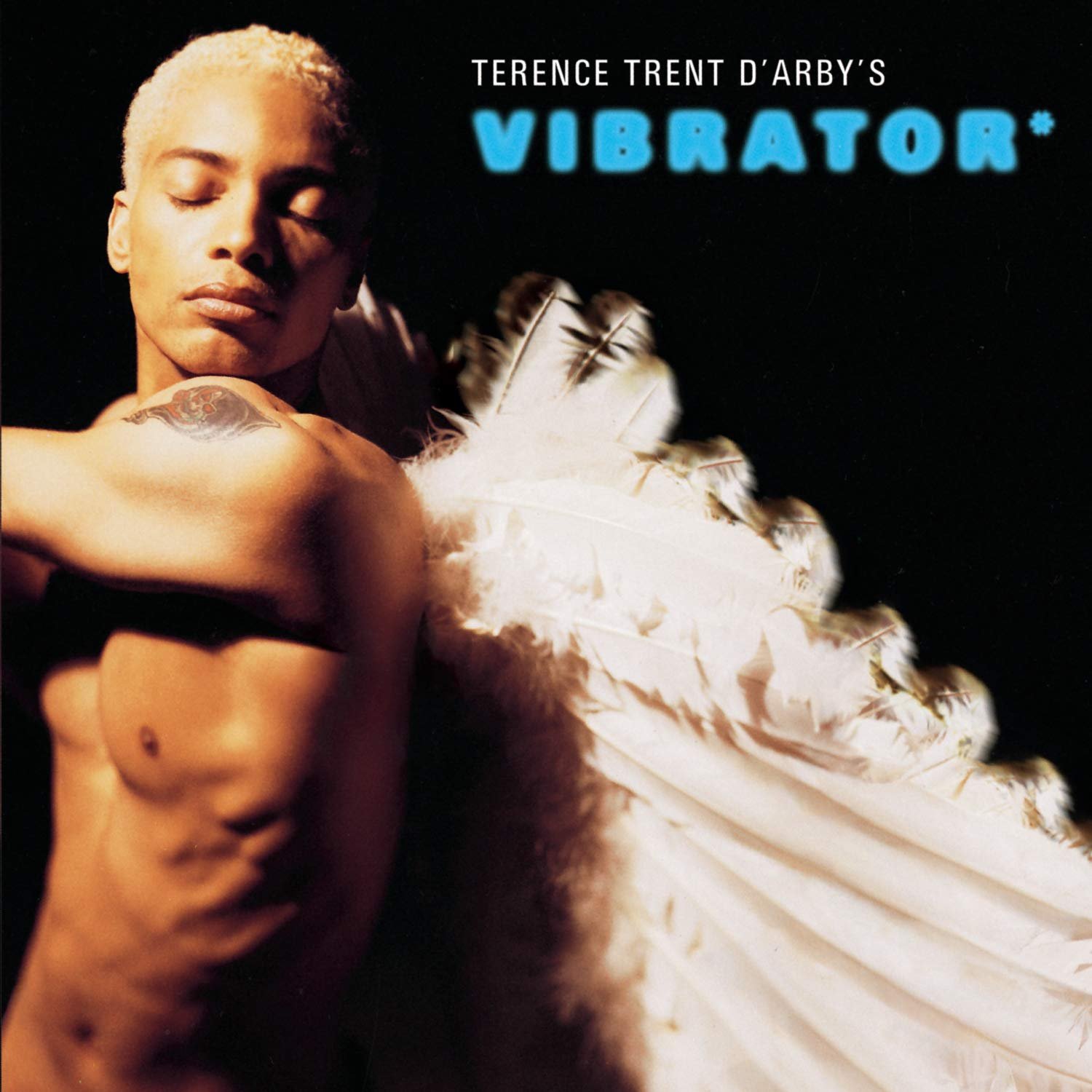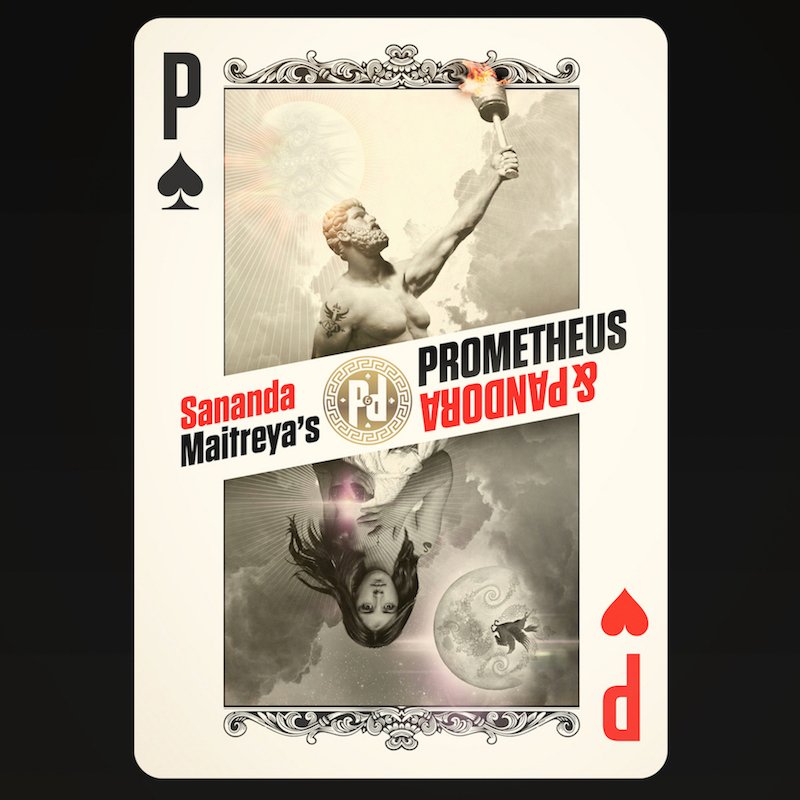Happy 30th Anniversary to Sananda Maitreya’s third studio album Symphony or Damn, originally released May 11, 1993.
If you were a casual fan of Sananda Maitreya (formerly Terence Trent D’Arby), you’d be forgiven for thinking his major label career began and ended with his astonishing 1987 debut Introducing the Hardline According to.... Such a stratospheric rise with a debut almost always leads to a reckoning by some standard or another—be it artistic, commercial or critical, and this was certainly no different.
His 1989 follow-up album Neither Fish Nor Flesh was almost willfully obtuse. As a way of dealing with such sudden and intense fame, it served its purpose magnificently. Hardline sold by the bucket load in the UK and although the US resisted his charms for a while, the album peaked at #4 on the Billboard chart and “Wishing Well” hit #1 on the singles chart. Neither Fish Nor Flesh didn’t come remotely close to its precursor’s chart success. In fact, it barely registered.
While not without its share of good songs, the difference was marked. Some would label the album indulgent, others would applaud it for its bravery and honesty in not serving up more of the same. Maitreya himself would bemoan his label Columbia Records’ lack of interest in promoting it as the reason it failed commercially. But whether it was that, Maitreya’s reticence to repeat a formula or the convergence of both, the effect was the same—a change was inevitable.
That change became apparent on Maitreya’s third album Symphony or Damn, which was released four years after his sophomore effort in May of 1993. If you’ve had the pleasure (and frustration!) of hearing his most recent work, you’ll doubtless recognize the more rock-orientated sound that had its beginnings on Symphony or Damn.
Where Hardline melded pop, soul and gospel influences to create its winning formula, so Symphony or Damn found Maitreya embracing the guitar more than he had on previous albums. In burning down the house with Neither Fish Nor Flesh, he allowed himself to rebuild from the foundation upwards and include the full range of his influences, rather than be forced to follow the pattern established by Hardline.
Retreating to Los Angeles and his custom built studio, the Monasteryo, the intervening four years were spent putting together a hugely impressive album that inevitably became labeled a “come back.” While its numbers didn’t (and perhaps couldn’t) match those of his debut, it nevertheless brought him back to those who cared enough to try.
In reflecting upon the album, it’s worthwhile to turn the clock back to look at the lay of the record buying land at the time to discover where Maitreya figured in the landscape. In doing so, you realize that he didn’t fit in. Anywhere. Hip-hop was an almost all-consuming beast, New Jack Swing still held some sway, and it seemed a guitar wielding black man couldn’t get a look in.
Watch the Official Videos:
Indeed it’s a theory Maitreya has long held that chances for a swaggeringly successful black man with a guitar were few and far between due to the pervasive racial prejudices of a morally corrupt music business. So in listening to the album now, it is clearer than ever that it was never going to be a huge success, despite the tremendous quality of the material on offer, as it just didn’t fit what was being pushed by radio on either side of the Atlantic.
There are some things that you need to accept when listening to any of Maitreya’s albums. There are times when his penchant for pretension proves a little trying, while his desire for a pun in the midst of his lyrics sits awkwardly when surrounded by the quality of the music that accompanies it. Those issues notwithstanding, Symphony or Damn is an album of stellar quality that deserves much more love.
Slight album opener “Welcome To My Monasteryo,” with its monastic vocal vibe seems to be an early classic case of self-indulgence, until the doors are well and truly kicked down by the blistering rock of “She Kissed Me.” It succeeds spectacularly in blowing away the cobwebs of a lengthy hiatus and as an introduction to this new, rockier Sananda Maitreya.
It also serves as the first half of a duo of rollicking, driving beauties that leave no doubt whatsoever that Maitreya has a guitar and is not afraid to use it. “Do You Love Me Like You Say You Do?” is the other half of the unholy riot and they both bristle with ego, swagger and sex. In addition to the heavier use of guitar, the songs showcase the growling beast of a voice that Maitreya used less frequently on his previous two albums.
It seemed incomprehensible that his voice could have more glorious facets, yet here it was, peeling another layer away from his mellifluous syrupy soul voice to reveal a riotous, weathered rock voice of equal impact. “Delicate” featuring British singer Des’ree demonstrated that the delightful soul voice was still ready and primed for action in a song that lived up to its dainty title before embarking on some low slung, ever so slightly grungy rock on “Wet Your Lips.”
Right in the middle of the album though sits a wonderful gem of a song filled with his usual loquacious lyrics, such as, “Now as you wander through your vagabond stage / and you find yourself shoveling shit / with a rusty jack-handle queen of a broken spade.” “Turn The Page” benefits from a loping, baggy funky groove and some charming Wurlitzer-like organ lines that combine to construct an empowering and uplifting tale of leaving a tortured past behind, elevated further by his swooping and soaring vocal prowess. It’s a beauty.
Enjoying this article? Click/tap on the album covers to explore more about Sananda Maitreya:
In truth, there is a slight lull at the beginning of the second part of the album (named ‘Reconciliation,’ an example of the slightly tiresome pretension). Not that there aren’t things to love about “Castilian Blue,” “Are You Happy?” and “Succumb To Me,” but they don’t quite hit the dizzying heights of earlier sequences.
But that lull is brought to a halt by a run of three songs that are among my favorite trios from almost any album by any artist. That they round out the album means that they linger even longer as the abiding memory of this “comeback” album. “I Still Love You” is a delicious country-twanged slice of simplicity that gives his amazingly soulful voice the space it needs to work its magic. This then shifts into “Seasons” which is a contemplative rumination on the temporary nature of love. It is subtle, deeply affecting and his falsetto is just as perfect as any other you care to mention.
The dessert to this meal of haute cuisine fare is album closer and heartbreaking ballad par excellence “Let Her Down Easy.” With only piano for accompaniment (at first), his angelic voice lends more power to an already powerful lyric: “In her strawberry eyes / the way she sees you signifies / that she’s susceptible to your velvet lies.” It truly is a finish to exalt to the heavens.
Maitreya would release one more album on a major label (the hugely impressive but commercially unsuccessful 1995 LP Vibrator) before deciding independence was more important. He would mirror his peer and friend Prince in changing his name (to Sananda Maitreya) and declining to play the game with the dice loaded against him, before eventually moving to Milan, Italy and releasing records as and when he saw fit through his website.
If ever there was an example of record sales having no relation to the quality of the material, this album is a perfect one. Invest an hour or so and rediscover or revisit one of the best voices of the last 35-plus years and revel in the exposition of his rock roots. You will be rewarded handsomely.
LISTEN:
Editor's note: this anniversary tribute was originally published in 2018 and has since been edited for accuracy and timeliness.

